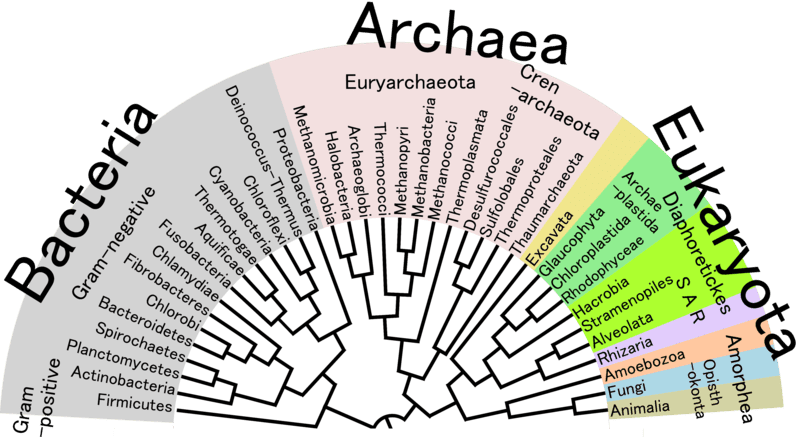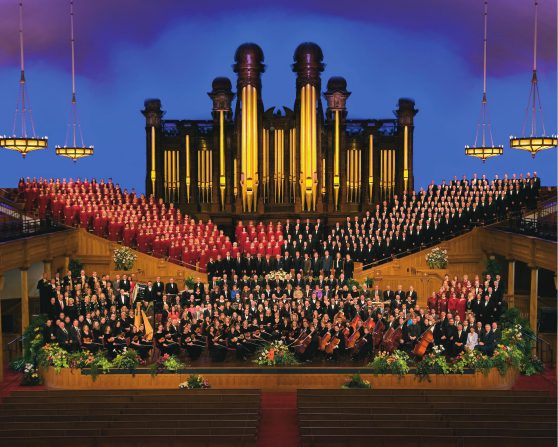
It seems to me that the term evolution has at least three quite distinct meanings in ordinary lay English conversation, and that these three need to be carefully distinguished during conversation, lest confusion result.
- One meaning is “change over time.” Nobody seriously disputes this. Or, at least nobody should dispute it. People today are taller than they used to be. (Look at King Henry VIII’s armor in the Tower of London if you want to try to dispute this.). Better nutrition, interracial marriages, and any number of other factors can drive multiple kinds of change. Breeders of roses and practitioners of animal husbandry know that changes are not only possible but easily effected. Very slight more controversial, I suppose, are the multiple lines of fossil evidence demonstrating that the animals and plants and regional ecologies were different in the past than they are today. The only real question in this regard is the extent of change over time and the extent of change that is possible. Of course, another relevant question concerns how long the processes of biological change have been underway. Whether creation of the earth was completed in BC 4004, as was calculated by Archbishop James Ussher, or whether the earth is approximately 4.543 billion years old, as most scientists (and, by the way, most if not all Intelligent Design theorists) assume, will significantly impact how one views the origins and development of life. (I, by the way, have been repeatedly characterized — sometimes in communications made directly to me — as a young-earth creationist. That’s always news to me. I’m otherwise strongly inclined to believe that I believe that the earth is, indeed, probably a little bit more than four and a half billion years old.)
- Another meaning is the notion of common origin, presumably from a primordial single-cell organism that arose somehow. It’s interesting to note that Charles Darwin himself apparently never addressed the question of the absolute origin of life in his books. (His famous speculation about life’s possible beginning in some warm tidal pool somewhere or other appears in a letter to a friend, but evidently not in his published writings.) Instead, On the Origin of Species (1859) and The Descent of Man (1871) presume the existence of living organisms upon which evolution then works by means of natural selection. Most modern evolutionary theory presumes common ancestry for all living things — Darwin’s famous “tree of life” — as do most contemporary writers on Intelligent Design. I’m told, however, although I can’t confirm this on my own, that some evolutionary theorists are now expressing doubts about the notion that all living organisms, whether plant or animal or other, derive from a single original, and some Intelligent Design authors also questioning the idea.
- A third meaning of evolution is the idea that all living beings on earth have developed into the variety that we now today and from the fossil record via an unguided process in which the primary factors are random genetic variation or mutation, on the one hand, and, on the other, the principle of natural selection of those fittest for survival. Charles Darwin and his contemporaries knew nothing about genetics, so this is Darwin’s original insight into natural selection coupled with concepts flowing from the insights of Gregor Mendel and others into the heritability of genetic traits. The merger of the two strands of thought is often termed “neo-Darwinism.” It is the insistence that the historical biological process is unguided, produced solely by genetic variations within the constraint of essentially Malthusian population constraints that today’s Intelligent Design authors deny. They are, typically, willing to grant major roles to genetic changes and natural selection, and most of them don’t even remotely deny significant changes over significant lengths of evolutionary time, but they contend that genetic mutability and survival of the fittest — the latter a phrase coined not by Charles Darwin himself but by an enthusiastic follower, the philosopher Herbert Spencer — are inadequate to explain what we see today and the often rather abrupt changes that scientists observe in the fossil record. (The late Harvard paleontologist Stephen Jay Gould [1941-2002], who was also a gifted writer and science popularizer, seemed to have recognized the problem of those abrupt changes with his suggestion of what he called “punctuated equilibrium.” But his explanation for them, which involved small sub-populations becoming isolated and then rejoining the general population, doesn’t really seem to have taken hold among other scientists. Geologically sudden and rapid changes in the fossil record — in, for example, the famous “Cambrian explosion,” but not only there — don’t really seem reconcilable with the gradualism implicit in standard Darwinism or in neo-Darwinism, and there is, at present and so far as I’m aware, no generally accepted explanation for them.
It is the idea of a random and completely unguided process to which many religious people object. And, while I don’t believe that they are intended to give us the scientific details of the process of creation the scriptures — to say nothing of certain elements of Restoration liturgy — seem make a very deliberate point of divine purpose and divine guidance behind it.
Just some thoughts. And here is a related blog entry from two or three years ago:
“On Latter-day Saint Rejection of Evolution”

(LDS.org)
We’re just back from the Tabernacle in Salt Lake City. We met friends for dinner at one of our very favorite restaurants, the Market Street Grill in South Jordan — which still, I think, makes the best clam chowder I know — and then drove with them up to a performance of Felix Mendelssohn’s oratorio Elijah by the Tabernacle Choir at Temple Square and the Utah Symphony. Thierry Fischer conducted, and the soloists were Susanna Phillips (soprano), Sasha Cooke (alto), Matthew Polenzani (tenor) and Kyle Ketelsen (bass).
Here, in case your memory is fuzzy, are a trio of familiar pieces from Elijah:
“Cast Thy Burden Upon the Lord”
“He Watching Over Israel Slumbers Not Nor Sleeps”
Such dreck is to be found, obviously, in the Christopher Hitchens Memorial “How Religion Poisons Everything” File©. Perhaps, someday, we can be free of these theistic horrors! Imagine a world without Dante, Milton, Mendelssohn, Michelangelo, Handel, and the like. One can dream, right?











